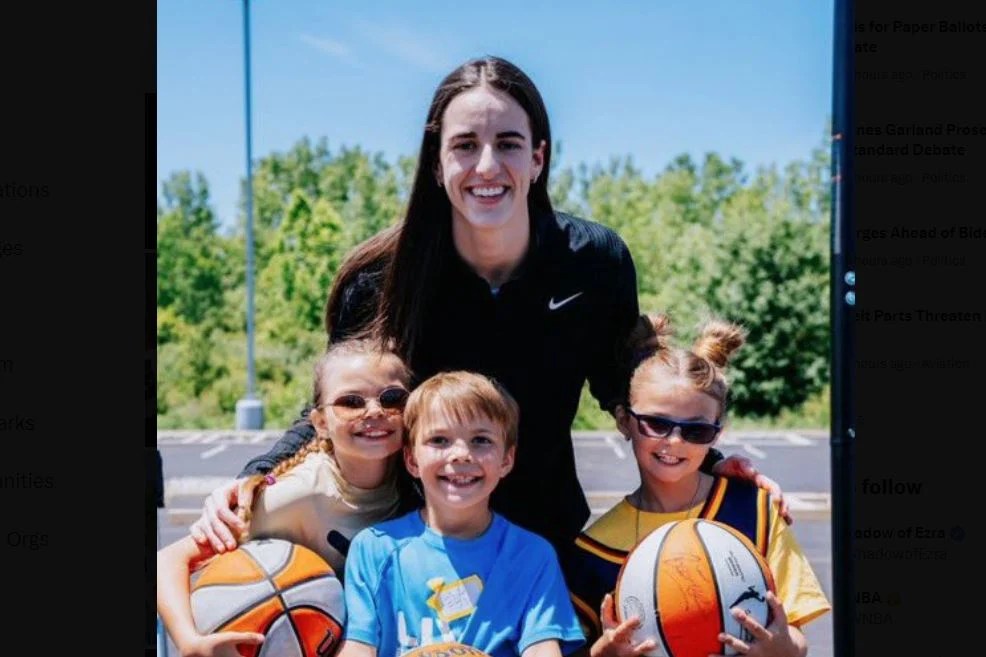In a shocking revelation, James O’Keefe’s O’Keefe Media Group (OMG) has released an undercover video that exposes a behind-the-scenes bias at MSNBC. The video, which was made public on Thursday, captures Basel Hamdan, a producer for the network, openly admitting that MSNBC is working to assist Vice President Kamala Harris in her quest to secure the presidency. The footage has already sparked widespread controversy, as Hamdan’s statements confirm long-standing suspicions about the network’s political leanings.
During the undercover operation, Hamdan, who works as a writer and producer for MSNBC’s show “Ayman,” was asked by an undercover OMG journalist about the network’s role in the upcoming election. Hamdan didn’t hold back, revealing that MSNBC actively aligns its daily messaging with Harris’s political agenda. “What her [Harris’s] message of the day is, is their message of the day,” Hamdan disclosed. He further explained that the network is doing “all they can” to help Harris win the election, essentially operating as an extension of her campaign.
The candid admissions from Hamdan, caught on hidden camera, have added fuel to the ongoing debate over media bias in the United States, particularly regarding MSNBC’s perceived alignment with the Democratic Party. “MSNBC is indistinguishable from the party,” Hamdan claimed, solidifying his point that the network has become too closely tied to Democratic politicians, often promoting their narratives without any pushback.
In a particularly striking part of the conversation, Hamdan described the seamless collaboration between MSNBC anchors and Democratic politicians during interviews. According to him, the interview dynamics are so in sync that the anchors and politicians appear to “finish each other’s sentences.” This cozy relationship has led many to question the journalistic integrity of MSNBC and the impact it might have on the broader political discourse.
But Hamdan didn’t stop at critiquing the network’s relationship with Democratic politicians. He also had harsh words for MSNBC’s audience, describing how the network has “made their viewers dumber over the years.” Hamdan’s comments suggest that rather than informing the public, MSNBC’s consistent alignment with one political party has dumbed down its viewers by feeding them only one side of the story. This, he implied, has contributed to a more polarized and less informed electorate.
WATCH:
BREAKING: @MSNBC Producer Admits MSNBC Is 'Doing All They Can to Help’ the Harris Campaign
During an undercover date with an OMG journalist, Basel Hamdan (@BaselYHamdan), a writer and producer for MSNBC’s show “Ayman,” (@AymanMSNBC) was asked what the network has done to assist… pic.twitter.com/y9Yk8o1UX7
— James O'Keefe (@JamesOKeefeIII) October 3, 2024
Hamdan’s remarks have drawn considerable attention, not just for his insider knowledge, but also for the confirmation of what many have long suspected: that MSNBC is heavily invested in advancing the Democratic Party’s narrative. The fact that a network producer would candidly admit to such a degree of partisanship raises questions about media ethics, objectivity, and the role of major news outlets in influencing elections.
The undercover journalist from OMG asked Hamdan directly about MSNBC’s efforts to support Harris. “So do you feel like MSNBC is doing enough to help the Harris campaign?” the reporter asked.
Hamdan’s response was straightforward. “I mean, they’re doing all they can to help,” he said, without hesitation. He explained that the network’s strategy involves amplifying Harris’s messaging, ensuring that her political narrative becomes a core part of MSNBC’s daily news coverage.
While it’s no secret that many news organizations have biases, the level of involvement described by Hamdan points to a deeper level of cooperation between MSNBC and the Democratic Party. His statements suggest that rather than challenging politicians, the network has become an echo chamber for their agendas, particularly for figures like Kamala Harris.
The video has naturally attracted attention from both sides of the political spectrum. Supporters of Harris and MSNBC might dismiss the revelations as overblown or attempt to discredit the undercover tactics used by O’Keefe’s group. However, critics of the network have seized on the video as proof of a media landscape that is increasingly driven by political interests rather than objective reporting.
Hamdan’s frank assessment of MSNBC’s role in the election highlights a larger issue with media accountability. As major news networks continue to play influential roles in shaping public opinion, the lines between journalism and political advocacy have blurred. In the case of MSNBC, Hamdan’s comments raise the question of whether viewers are receiving an accurate portrayal of the political landscape or simply being fed a partisan narrative.
This isn’t the first time MSNBC has faced accusations of bias, but the revelation that a producer would openly admit the network’s active support for a presidential candidate is a significant escalation. Hamdan’s statements have not only drawn criticism of MSNBC but have also opened up a broader conversation about media influence and ethics in a politically charged environment.
In the final moments of the undercover footage, Hamdan’s summation of the network’s role was perhaps the most damning. “They just are way too cozy with the Democratic politicians,” he said, offering a glimpse into how the network operates behind the scenes. “If you watch an interview with a Democratic politician, they just finish each other’s sentences,” he added, further underscoring the blurred lines between journalism and political partisanship at MSNBC.
As the fallout from the video continues, MSNBC’s reputation as a credible news source may take a serious hit, especially among viewers who expect objective and balanced reporting from their media outlets.


Is anyone surprised? All leftist comrades stick and steal well together.